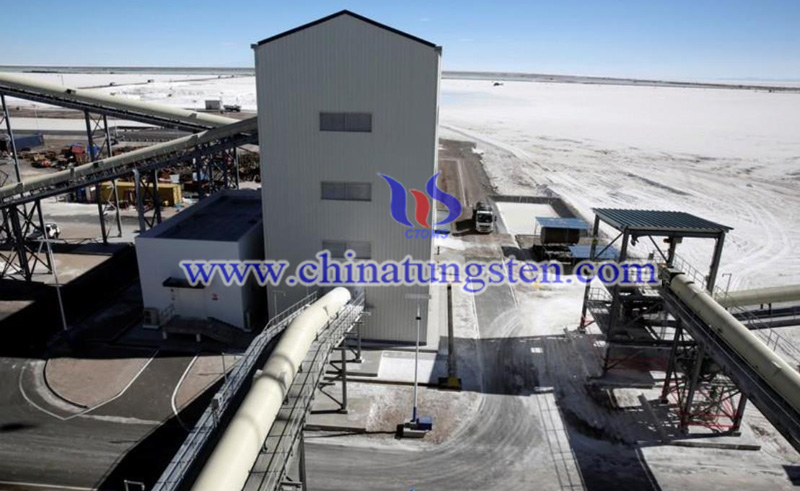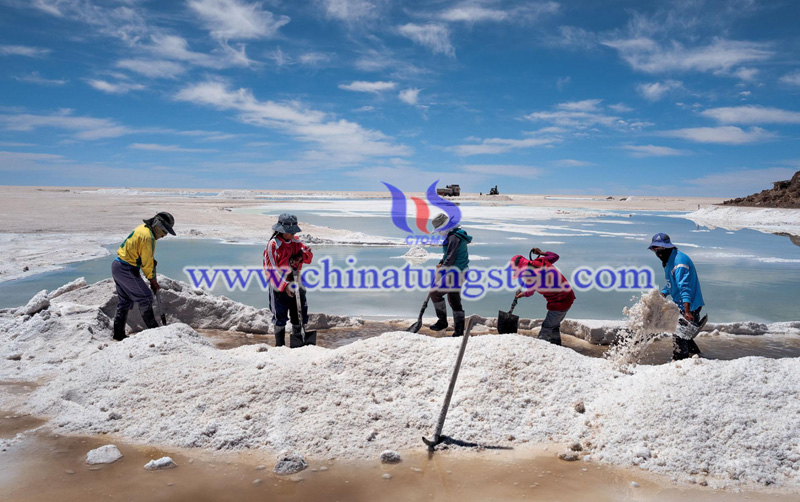Bolivia Secedes Joint Lithium Project with German Company
- Details
- Category: Tungsten's News
- Published on Tuesday, 05 November 2019 13:16
A massive joint lithium project of Bolivia and southern German firm ACI Systems Alemania (ACISA) was overturned by the Bolivian government. The project is considered vital for the German auto industry's plans to develop electric batteries.
Residents in the city of Potosi, where the joint venture had planned to build a factory for electric vehicle batteries and a lithium hydroxide plant, have been protesting this project since the beginning of October. According to the Spanish news agency EFE, protesters claimed that the region did not receive sufficient benefits from the transaction and asked the authorities to increase the agreed 3% royalties to 11%.

The Potosí authorities said that before making this decision, President Evo Morales issued a decree over the weekend to overturn the previous order of permitting $250 million in the project.
ACISA is headquartered in the heart of the Black Forest in Germany, called Zimmern ob Rottweil. It is a subsidiary of the ACI Group and provides project management support for the photovoltaic, battery and automotive industries.
The company had only about 20 employees when it was founded, focusing on the construction of the project at the Salar de Uyuni all the time and committed to investing $1.3 billion into the project, while the project is failed. The Uyuni salt flat in Potosi state is believed to have one of the world's largest deposits of lithium mineral, a key raw material for battery cell production.
The demand for this white mineral is expected to be doubled by 2025. This soft, lightweight commodity is mainly mined in Australia, Chile, and Argentina. Bolivia holds the second largest reserve in the world, estimated at 9 million tons, accounting for about 25% of the world's known reserves, while it hasn't been put into operation.

Compared to neighboring Chile and Argentina, the lithium in the Bolivian salt flats is higher and less dry, and contains more magnesium and potassium, making the extraction process more complicated and expensive.
There is more rainfall and a cooler climate in Uyuni, which means the evaporation rate is not even half that of Chile's Atacama salt marshes, where salt ponds evaporate quickly.
Lack of infrastructure and investor confidence in the Bolivian government are negative factors affecting Morales' development of the lithium industry. As well as the factors for the overturning of the joint project of Bolivia and German company.
- Tungsten Manufacturer & Supplier, Chinatungsten Online: www.chinatungsten.com
- Tungsten News & Prices of China Tungsten Industry Association: www.ctia.com.cn
- Molybdenum News & Price: news.molybdenum.com.cn
- Tel.: 86 592 5129696; Fax: 86 592 5129797; Email: sales@chinatungsten.com



 sales@chinatungsten.com
sales@chinatungsten.com